 Pillsbury attorneys Craig Becker and Robert Merten III will present during COST’s 2020 Property Tax webinar, held in cooperation with the International Property Tax Institute (IPTI).
Pillsbury attorneys Craig Becker and Robert Merten III will present during COST’s 2020 Property Tax webinar, held in cooperation with the International Property Tax Institute (IPTI).
Craig will present “California – Examining Property Tax Issues in the Golden State” on Wednesday, September 16 at 4:10pm. The presenters will address how business taxpayers may have to deal with split-rolls, transfer taxes as a result of the intersection of the Ardmore decision and Prop 13, the erosion of Proposition 13 protections through post-Uplands litigation that may make it easier to increase taxes at the local level, and technology transfer agreements. In addition, renovations of buildings have the potential to trigger “New Building” assessments in California.
Robert will present “Your Tax Department Should Work as a Team – Strategies to Make it Work – Even When Working Remotely,” on Thursday, September 17 at 2:05pm. In this session, the panelists will provide examples of how the different tax types intersect and how those relationships need to be taken into account, especially in the current stay-at-home COVID-19 environment.
For more information, please click here.
 SeeSALT Blog
SeeSALT Blog


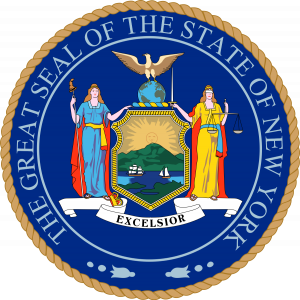 A New York trial court held that charges for storage services rendered in New Jersey were not subject to New York sales tax despite the fact that the property was originally picked up in New York.
A New York trial court held that charges for storage services rendered in New Jersey were not subject to New York sales tax despite the fact that the property was originally picked up in New York. 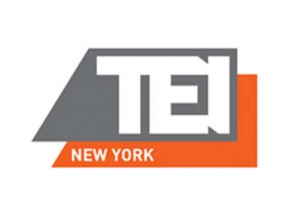 Pillsbury SALT attorneys Marc Simonetti, Carley Roberts and Nicole Boutros will present during TEI NY’s State and Local Tax Summer Update Meeting, sponsored by Pillsbury, on August 26.
Pillsbury SALT attorneys Marc Simonetti, Carley Roberts and Nicole Boutros will present during TEI NY’s State and Local Tax Summer Update Meeting, sponsored by Pillsbury, on August 26. The California Court of Appeal recently came down with a published decision in the Paula Trust case, a case involving the taxation of trusts and limited partners—two very nettlesome issues in California. (
The California Court of Appeal recently came down with a published decision in the Paula Trust case, a case involving the taxation of trusts and limited partners—two very nettlesome issues in California. (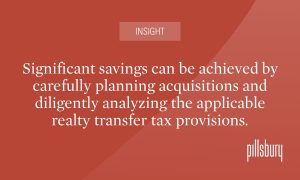 (June 18, 2020), California appellate court affirms that local realty transfer tax does not apply when leasehold has a remaining term of 35 years or more. SeeSALT authors Craig Becker, Breann Robowski, Richard Nielsen, and Robert Merten III explain.
(June 18, 2020), California appellate court affirms that local realty transfer tax does not apply when leasehold has a remaining term of 35 years or more. SeeSALT authors Craig Becker, Breann Robowski, Richard Nielsen, and Robert Merten III explain.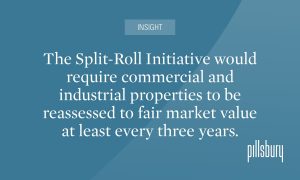 and industrial properties will lose their Proposition 13 protection against property tax reassessment.
and industrial properties will lose their Proposition 13 protection against property tax reassessment. 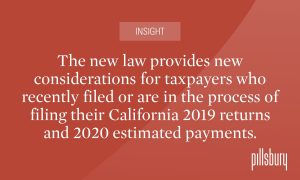 SeeSALT partners Jeff Vesely, Craig Becker, Carley Roberts and Breann Robowski break down Governor Newsom’s proposed tax legislation, recently passed by the California Legislature, to raise additional income tax revenue to assist in balancing the California budget. (
SeeSALT partners Jeff Vesely, Craig Becker, Carley Roberts and Breann Robowski break down Governor Newsom’s proposed tax legislation, recently passed by the California Legislature, to raise additional income tax revenue to assist in balancing the California budget. (